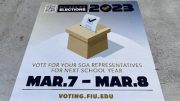Sebastián Arcos/ Guest Columnist
Interactions between the U.S. and Cuba go back several centuries to a time when both nations were European colonies.
For most of this time the bilateral relationship has been largely defined by two constants: geographic proximity and power asymmetry.
Two nations living as next-door neighbors; one large, rich and powerful, often patronizing; the other one small and disproportionately proud, often dislocated.
Curiously, both nations share a sense of exceptionality that perhaps has contributed more to bilateral conflict than to harmony.
Over the years, U.S. perception of Cuba has ranged through friendship, coveting, intervention, frustration and neglect.
Cuba’s perception of the U.S., on the other hand, has ranged through friendship, admiration, apprehension, frustration and antagonism.
Like that of two stubborn close relatives, the relation between U.S. and Cuba has been a complex one, full of ups and downs, periods of intense partnership followed by passionate confrontation, with plenty of misunderstandings and mistakes on both sides.
There is a popular theory—arising perhaps from U.S. hubris but unquestionably fueled by relentless propaganda from the Castro regime—that claims the U.S. is to blame for all the problems Cuba has confronted since its independence in 1902.
Like all urban legends, this fallacy is grounded on “a kernel of truth wrapped in lies, distortions, deceptions and fabrications.”
Like all fallacies, this one cannot survive a careful, objective review of the historical facts.
Replacing an accurate understanding of history with a simplistic fallacy can only result in adopting a deficient policy solution. There is no such thing as a silver bullet, and good intentions are not enough.
To effectively deal with the task of normalizing U.S.-Cuba relations, we must first have a sober understanding of the roots of the current discord, followed by a rational, principled, systematic and steady policy to mend our fences for good.
It can be done and it should be done, for the sake of both nations, inexorably destined to live side by side, preferably in a harmonious and mutually prosperous arrangement.
Sebastián Arcos is the Associate Research Director of the Cuban Research Institute at Florida International University.
Letters to the Editor are not written by Panther Press Staff. They are submitted by readers of Panther Press. These views are separate from editorials and reflect individual perspectives of contributing writers and/or members of the University community.
Photo by Jonathan Butler-Smith on Unsplash.





Be the first to comment on "Letter to the Editor: The U.S. – Cuba rollercoaster must be stopped"